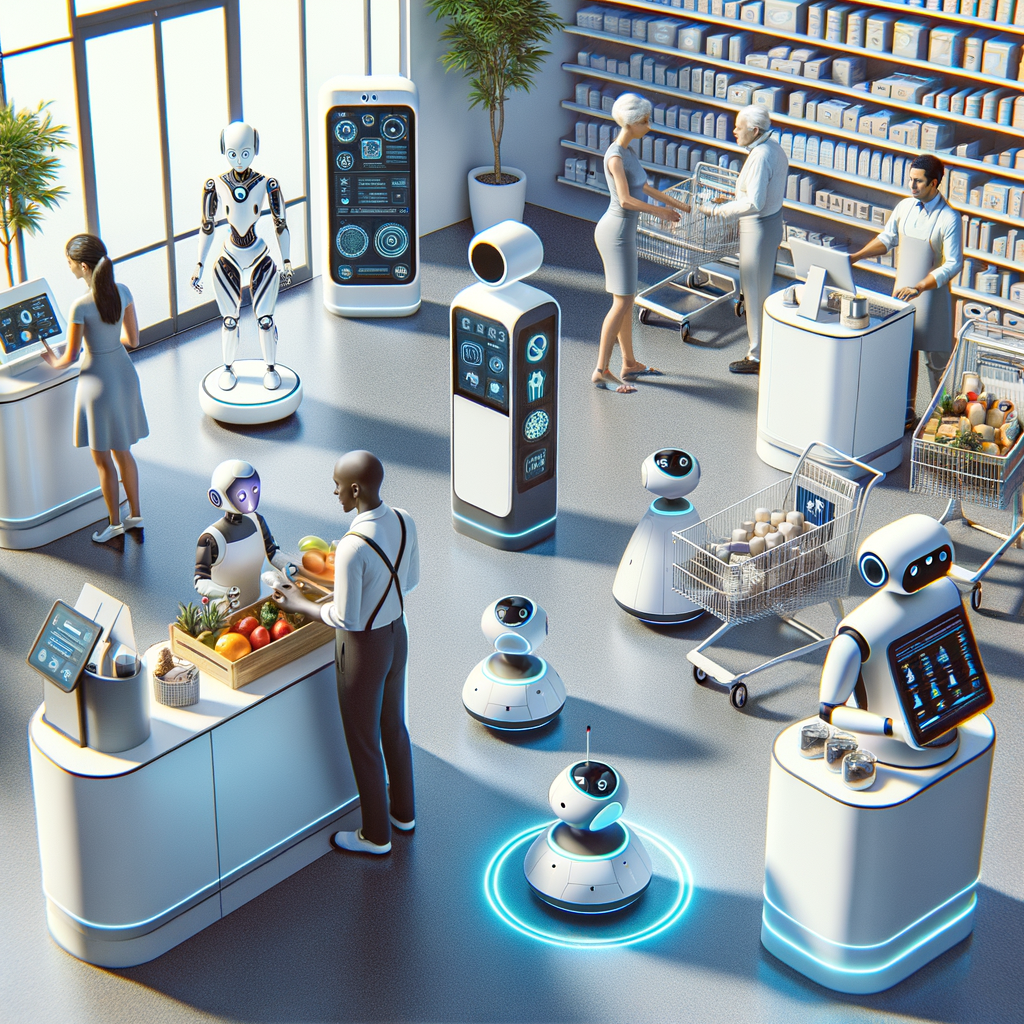The retail industry is experiencing a seismic shift as artificial intelligence (AI) and robotics innovate and redefine the landscape. With cutting-edge technology at their core, AI-powered retail robots are transforming how stores operate, how customers interact with brands, and how the industry evolves to meet ever-changing consumer demands. This revolution is not just a glimpse into the future but a present-day reality that is reshaping every facet of retail.
AI-Powered Automation Elevates Retail Efficiency
In recent years, AI-powered automation has emerged as a key driver in enhancing retail efficiency. Retailers are increasingly deploying intelligent robots to perform tasks that were once labor-intensive and time-consuming. From inventory management to shelf stocking, these robots are equipped with AI algorithms that enable them to perform repetitive tasks with precision and speed. This has not only reduced operational costs but also allowed human employees to focus on more strategic and customer-centric roles.
Moreover, AI-driven robots streamline supply chain operations by providing real-time data analytics. These intelligent machines can track product movement throughout the store, ensuring optimal inventory levels and minimizing the incidence of stockouts or overstock situations. By analyzing consumer purchasing patterns, AI can predict demand fluctuations, allowing retailers to make informed decisions on stock replenishment and promotions.
The adoption of AI-powered robots has also led to significant improvements in accuracy and accountability. Unlike their human counterparts, robots are less prone to errors in tasks such as pricing, labeling, and inventory counting. This heightened level of precision minimizes losses from pricing discrepancies and inventory miscalculations, ultimately contributing to the bottom line.
Furthermore, automated systems enhance the shopping experience by ensuring shelves are consistently stocked and organized. This level of operational efficiency translates to higher customer satisfaction, as shoppers are more likely to find the products they need in a well-maintained and seamless retail environment. The marriage of AI technology with retail operations signifies a future where efficiency is continually optimized.
Intelligent Robots Redefine Consumer Interaction
Robots are not only revolutionizing back-end operations but also redefining consumer interaction within the retail space. Intelligent robots equipped with AI are being deployed to assist customers directly on the sales floor. These robots can guide shoppers to product locations, provide information about products, and even assist with in-store navigation, offering a personalized shopping experience that was previously unattainable.
AI-powered robots can also engage customers through interactive displays and multimedia presentations. By utilizing natural language processing and computer vision, these robots can interact with customers in multiple languages and adapt to diverse communication styles. This level of personalization enhances brand engagement and loyalty, as customers feel more valued and understood.
Beyond engagement, these robots are also collecting valuable data on consumer behavior, preferences, and feedback. This data is crucial for retailers seeking to customize marketing strategies and tailor the shopping experience to individual preferences. By understanding customer needs and trends, retailers can create more targeted promotions and product offerings, improving both sales and customer satisfaction.
In addition, the presence of robots in retail settings provides a sense of novelty and innovation that can attract tech-savvy consumers. Retailers that incorporate robotics into their operations position themselves as forward-thinking and customer-centric, qualities that resonate with modern consumers who value convenience and innovation in their shopping experiences.
Transformative Tech Spurs Retail Industry Evolution
The integration of AI and robotics is not only transforming individual retail operations but also driving the evolution of the entire industry. Traditional retail models are rapidly evolving to incorporate digital and automated elements, creating a hybrid approach that leverages the strengths of both physical and online retail. This transformation is evident in the growing trend of "omnichannel" strategies, where retailers seamlessly integrate various sales channels to provide a cohesive customer experience.
Furthermore, the rise of AI-powered robots is accelerating the development of new retail formats, such as automated convenience stores and kiosks. These formats rely heavily on robotics and AI to manage inventory, process transactions, and enhance customer service without the need for human intervention. This shift is particularly appealing in urban areas and high-traffic locations, where space is limited and operational efficiency is paramount.
The retail industry is also witnessing an increase in collaboration between tech companies and retailers. By partnering with technology innovators, retailers gain access to the latest advancements in AI and robotics, ensuring they remain competitive in a rapidly changing market. These partnerships enable retailers to leverage cutting-edge solutions that drive innovation and enhance the overall shopping experience.
As AI and robotics continue to reshape the retail landscape, regulatory and ethical considerations are coming to the forefront. Retailers must navigate issues related to data privacy, job displacement, and the ethical use of AI. Addressing these challenges will be crucial in ensuring that the industry evolves sustainably and responsibly, balancing technological advancement with societal considerations.
As AI and robotics continue to penetrate the retail industry, the impact is both profound and widespread. From streamlining operations to enhancing customer interactions and driving industry-wide evolution, the integration of these technologies signifies a new era of retail. While challenges remain, the potential for innovation and growth is immense. Retailers who embrace this transformation will not only enhance their operational capabilities but also redefine the shopping experience for the modern consumer, setting the stage for a vibrant and dynamic future in retail.

